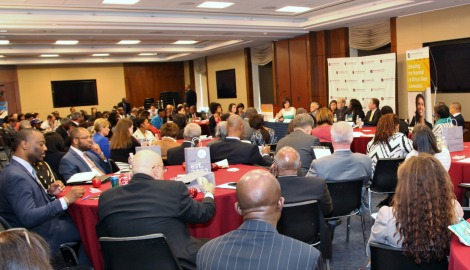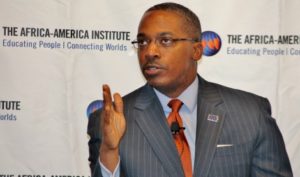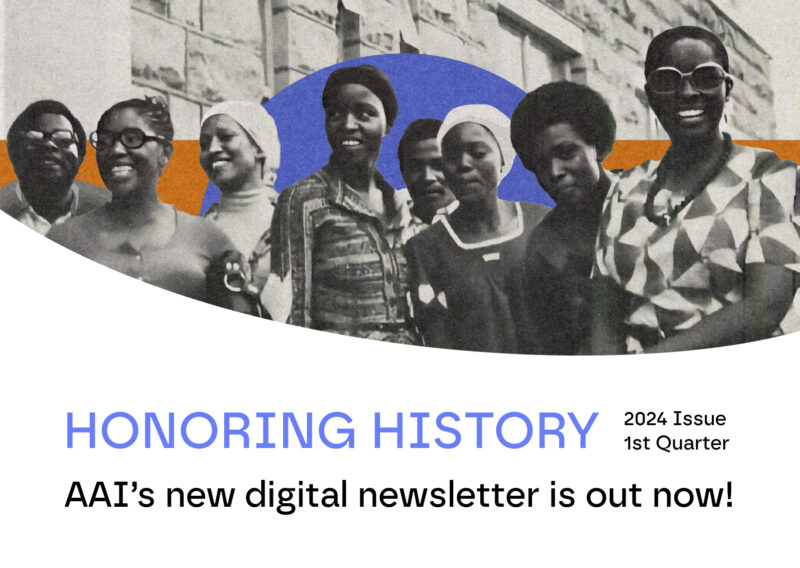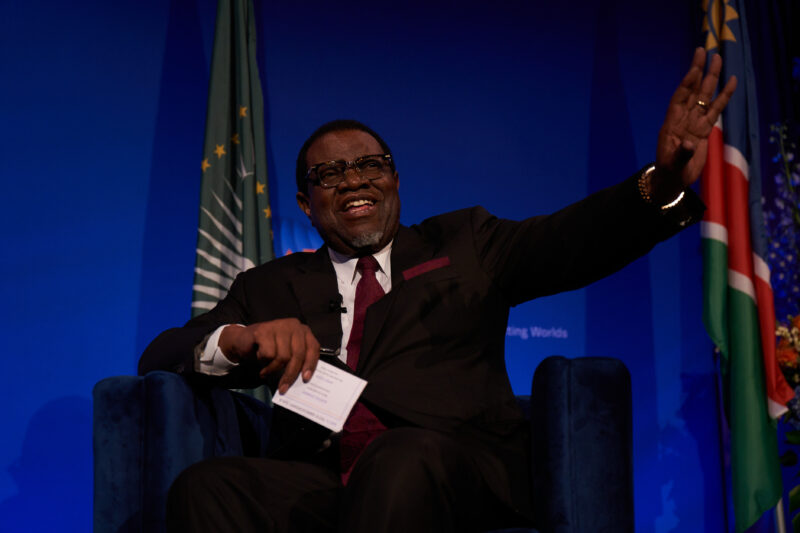AAI’s ‘Conversations on Africa’ Reflects on Obama Administration’s U.S.-Africa Policy and Looks to Future

The packed rooms for the ‘Conversations on Africa’ sessions at Capitol Hill’s Rayburn House Office Building demonstrated a high level of interest in U.S.-Africa engagement.
With the U.S. presidential election kicking into high gear, U.S. Government officials, foreign policy experts and members of the African Diplomatic Corps gathered for a spirited policy forum on April 21 to reflect on the White House’s legacy on engagement with Africa and put forth U.S.-Africa policy priorities for the next Administration at The Africa-America Institute’s Conversations on Africa (COA) in Washington, D.C.
The full-day Conversation, under the theme “Looking Ahead: Setting American Policy in Africa for the Next U.S. President”, was held at the Rayburn House Office Building on Capitol Hill.
A series of high-level panel discussions at the Conversations looked at the impact of the U.S. government education programs in Africa, White House signature initiatives such as Power Africa and the Young African Leaders Initiative (YALI), and the first U.S.-Africa Leaders Summit.
Moderated by award-winning producer and journalist Carol Pineau, the panel “Beyond the Obama Administration: What Can We Expect for Africa?” with surrogates of the five remaining presidential campaigns gave attendees a glimpse into the Africa policy positions and potential level of interest and engagement with Africa during their presidency.
“Secretary Clinton recognizes that doing the work of broadening and deepening relationships with our Africa governments, civil society and private sector is critically important,” said Michelle Gavin, Managing Director of The Africa Center and surrogate to Hillary Clinton. “There are a lot of problems that cannot be solved by any one country. And we need partners.”
The former U.S. Assistant Secretary of State for African Affairs noted that Secretary Clinton also supports deepening regionalization within Africa as a means of promoting the volume of intra-African trade.
“Mr. Trump wants to make America great again,” said Jeffrey “J.D.” Gordon, foreign policy expert and surrogate to presidential candidate Donald Trump. “As far as our international relations, he wants to win on trade. He said the U.S. loses on trade continuously.”

Representatives of the five major U.S. presidential candidates offered their candidates position on engagement with Africa.
Gordon added: “Certainly he wants strong ties with Africa. He wants strong economic development between the United States and Africa. So economic development and strong business ties are something to look forward to in a Trump White House.”
Walakewon Onyinyechukwu Blegay, co-counsel for the World Conference of Mayors and surrogate to Senator Bernie Sanders, emphasized that Sanders has a strong record of supporting global public health and U.S. foreign assistance to Africa.
Blegay said Sanders supports greater trade investment and economic justice on the continent, including the African Growth and Opportunity Act (AGOA).
“It’s about investing in Africa and not just throwing money [at the continent],” said Blegay. “Africa is truly a place to invest.”
Michael Ledeen, Freedom Scholar at the Foundation for Defense of Democracies and a surrogate to Ted Cruz, pointedly stated that Cruz did not have a firm U.S.-Africa policy, but would most likely focus on “disease and terror”.
A surrogate for Governor John Kasich’s campaign, Ambassador Herman Jay Cohen, former U. S. Assistant Secretary of State for African Affairs said Kasich’s “highest priority” for Africa would be to strengthen private sector investment, mainly from Africans.
Cohen stressed that African nations need to create an enabling environment for the private sector, so African and global investors can invest “with confidence and know that they will have the rule of law on their side and the sanctity of contracts.” “Then Africa can go a long way and America will be on their side,” he said.
All surrogates said their candidates will visit Africa during their first term.

Reuben E. Brigety II, diplomat and George Washington University’s Dean of Elliott School of International Affairs
Reuben E. Brigety II, George Washington University’s Dean of Elliott School of International Affairs and diplomat, delivered a Fireside Chat during the Policy Luncheon, where he stressed that U.S. foreign policy must focus on accelerating economic growth on the continent.
“The next chapter of Africa’s history will be defined by private sector-led economic growth,” Brigety said. “In order to do that, American companies have to show up.”
Currently, Brigety said there are too few foreign service economic and commercial officers in U.S. embassies to make an impact, citing no more than four officers across Africa. “This doesn’t make sense if you want to have a major commercial imprint,” said Brigety.
Moderated by Witney Schneidman, Senior Nonresident Fellow at The Brookings Institute, the panel, “Africa: What Should the Remaining Priorities for the 114th Congress Be?”, reviewed the Administration’s key priorities and congressional staffers and Africa advocates shared where Congress stands on proposed U.S.-Africa policy legislative bills.
The panel “Reflections: The Obama Administration’s Approach to Promoting Education in Africa” provided insight into the White House’s focus on education. Moderated by Vivian Lowery Derryck, President & CEO of The Bridges Institute, panelists included Julie Hanson Swanson, Deputy Chief, Education Division, Bureau of Africa, USAID and Rwandan Ambassador Mathilde Mukantabana.
AAI will produce a set of recommendations on U.S.-Africa policy for the next Administration in July.
AUDIO: “Beyond the Obama Administration: What Can We Expect for Africa?” Panel
AUDIO: Fireside Chat with The Honorable Reuben E. Brigety II
**Audio courtesy of Pan-African Visions



